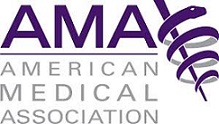 Moving Directly to ICD-11 Fraught with Pitfalls
Moving Directly to ICD-11 Fraught with Pitfalls
The American Medical Association has a released a report from its Board of Trustees voicing opinion that skipping over ICD-10 to move directly to ICD-11 isn’t an option. The report is a follow up to the AMA’s House of Delegates request at the AMA 2012 Annual Meeting for an evaluation of the feasibility of moving from ICD-9 to ICD-11, skipping ICD-10 all together.
In the report, Evaluation of ICD-11 as a New Diagnostic Coding System, the Board of Trustees provide an overview of what is known today about ICD-11. The report also includes a comparison of the implementation of ICD-10 versus ICD-11, and advantages and disadvantages of moving directly from ICD-9 to ICD-11. In speaking to AMA”s long held position against the mandated implementation of ICD-10, the report acknowledges the one year delay by HHS issued last August to push the compliance date to October 1, 2014 was a good compromise.
While many physicians have concerns about the costs and burden of ICD-10, there are many other stakeholders, including government agencies, researchers, large payers, large health system providers, and public health entities, that support the conversion. Stakeholders have already invested millions towards the adoption of ICD-10. Several physician state and specialty societies supported the one-year delay as a good compromise.
ICD-11 is currently being developed by the World Health Organization (WHO) and work to date has included the release of both an alpha and a beta version. ICD-11 is scheduled for delivery to the World Health Assembly, the decision-making body of WHO, in May of 2015 for approval, just eight months following the October 1, 2014 U.S. compliance date. This close time frame has raised the question of why even implement ICD-10.
In detailing the advantages and disadvantages of skipping ICD-10, the Board of Trustees says an advantage for skipping is that it will give physicians and the healthcare industry more time to implement EHRs and develop the infrastructure for health information exchange. In giving details on disadvantages of skipping, the report notes the timeframe to have ICD-11 fully implemented could take up to 20 years unless there is a strong commitment by the industry to implement it faster.
The AMA Board of Trustees concludes in the report that while the organization has reservations over the burden placed on providers for the mandated move to ICD-10, it doesn’t recommend skipping it. The board says “given the even greater complexities and uncertainties with moving directly from ICD-9 to ICD-11, the Board of Trustees believes skipping ICD-10 and moving directly to ICD-11 is fraught with its own pitfalls and therefore, based on current information available, is not recommended. ”
